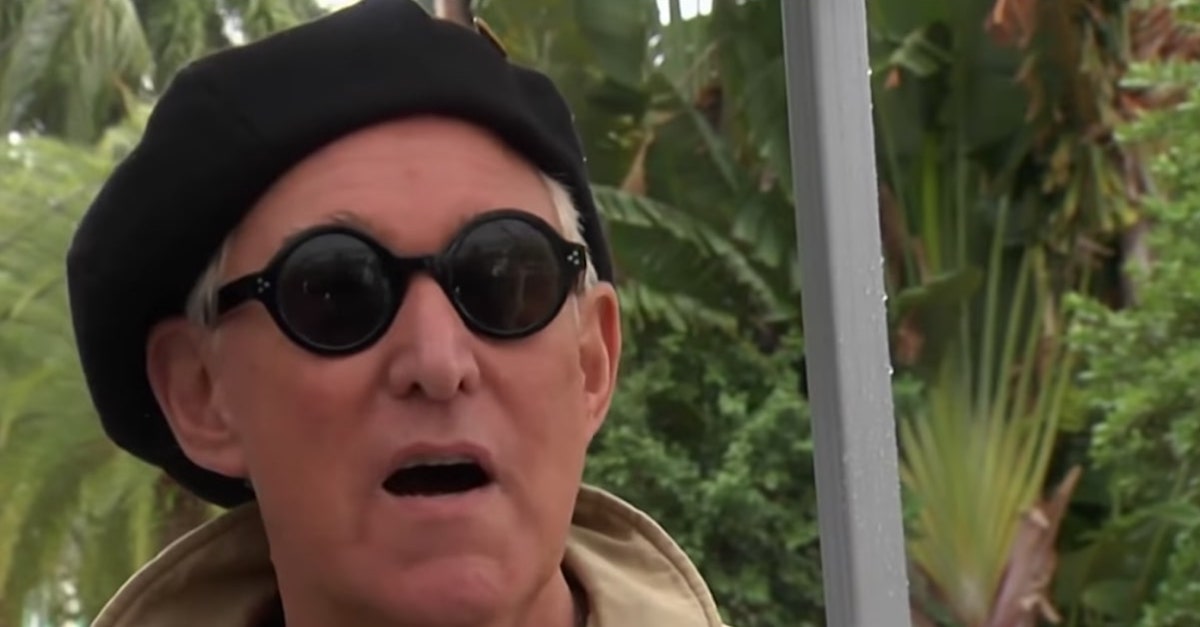
The federal judge presiding over Roger Stone’s case last week denied the defendant’s attempt to suppress evidence “obtained pursuant to eighteen search warrants executed in this case.” We are learning about this on Tuesday because that’s when the opinion and order was unsealed.
U.S. District Judge Amy Berman Jackson began by recapping what Stone asserted.
“He asserts that the factual underpinnings for all of the warrant applications — that the Russian government hacked computers belonging to the Democratic National Committee (‘DNC’), the Democratic Congressional Campaign Committee (‘DCCC’), and the chairman of the Hillary Clinton presidential campaign, and that Russia was responsible for giving the stolen data to WikiLeaks — are false,” the judge wrote.
From there, Jackson explained what Stone sought, to no avail [citations removed].
“Stone seeks an evidentiary hearing pursuant to Franks v. Delaware, and he has supplied the opinions of two cyber analysts in support of his motion. Because defendant has failed to satisfy either prong of the showing necessary to obtains a Franks hearing, the Court will deny the motion to suppress,” the judge continued.
Jackson explained that Stone’s attorneys, “in short,” had to demonstrate that the judge or magistrate who issued the warrants was “misled.” The judge said Stone “has not come close to meeting this standard,” for a couple of key reasons.
For one, per Jackson, Team Stone “has not identified any statements in the eighteen affidavits that he claims are deliberately false or were made in reckless disregard for the truth.” Secondly, Jackson wrote, “Even if the statements included in the affidavits were false, they were not necessary to the issuing courts’ probable cause determinations.”
Judge Jackson explained why the statements were not relevant to the “issue of probable cause”:
While the warrant applications may have grown out of a larger investigation into Russian interference in the presidential election, they sought information related to the theft and release of data from the DNC computers and other targets in general, as well as alleged actions by the defendant to impeded the HPSCI’s [House Permanent Select Committee on Intelligence’s] investigation into possible foreign interference in the election.”
Stone faces seven counts, including obstruction of an official proceeding, five counts of making false statements, and one count of witness tampering. He is still on track for an early November trial. A pretrial conference is scheduled for Wednesday.
Judge denies Roger Stone’s motion to suppress by Law&Crime on Scribd
[Image via Image Via MSNBC screengrab]